Industrial dough mixers have increased capacity, improved speed and power, programmable controls, enhanced safety features, easy maintenance and cleaning, versatility with attachments, and energy efficiency. These advancements have allowed bakeries to increase production output, achieve consistent results, ensure operator safety, simplify maintenance, expand recipe options, and reduce energy consumption, improving efficiency and productivity in commercial dough mixing operations.
What is an industrial dough mixer?
An industrial mixer for dough is a machine used in bakeries, pizzerias, and other food establishments to mix dough for bread, pizza, pastries, and other baked goods. These mixers are designed to handle large quantities of dough, ranging from several pounds to hundreds of pounds at a time. Commercial dough mixers come in various sizes and types, including planetary, spiral, and horizontal mixers. They are typically equipped with powerful motors, multiple speed settings, and various attachments, such as dough hooks, whisks, and paddles, to accommodate different types of dough and recipes. Industrial bakery mixers have revolutionized the baking industry by streamlining the dough-mixing process and increasing productivity.
Capacity of a 20-litre industrial dough mixer
Industrial bread mixers are capable of handling a significant amount of dough. The exact quantity of dough it can make depends on the recipe and the desired consistency of the dough. However, as a rough estimate, a 20-litre dough maker can typically handle around 8-10 kilograms (17-22 pounds) of dough at a time. This capacity makes it suitable for small to medium-sized bakeries or food establishments requiring a moderate volume of dough for daily operations. To determine the capacity of a dough maker, one can refer to the manufacturer's specifications or the product label. The capacity of a dough maker is usually measured in terms of the amount of dough it can process at a time. This can be expressed in pounds or kilograms, or in terms of the number of cups of flour it can handle. It is important to note that the capacity of a dough maker can vary depending on the model and brand. Therefore, it is important to choose a dough maker that meets the specific needs of the user and their intended use. Additionally, it is recommended to consider the size of the dough maker and the available space in the kitchen before making a purchase.
Use of industrial dough mixers
An industrial dough machine is designed to mix dough efficiently and consistently in commercial baking operations. A commercial dough mixer is primarily used to blend and knead ingredients to create dough for baked goods, such as bread, pizza, pastries, and more. A commercial dough mixer combines flour, water, yeast, salt, and other ingredients to form a cohesive dough. The mixer's powerful motor and various attachments, such as dough hooks or spiral arms, knead the dough, developing gluten and creating elasticity. Industrial dough mixer machines ensure consistent mixing and kneading, ensuring uniform dough texture and quality. Commercial dough mixers save time and reduce the physical effort required compared to manual mixing by automating the mixing and kneading process. They can also handle large quantities, allowing bakeries and food establishments to produce dough in bulk. Commercial dough mixers can accommodate various dough recipes with different speed settings and attachments, from soft and sticky to stiff and dense.





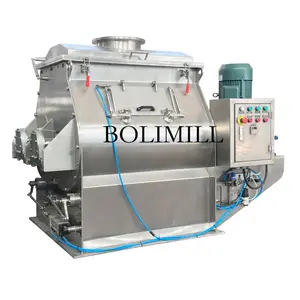

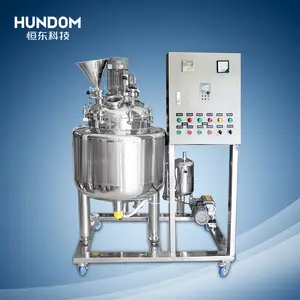



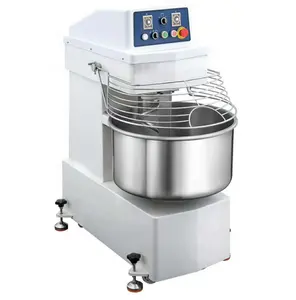
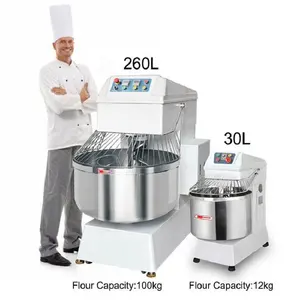
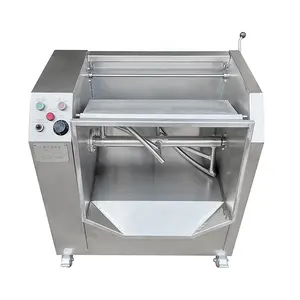

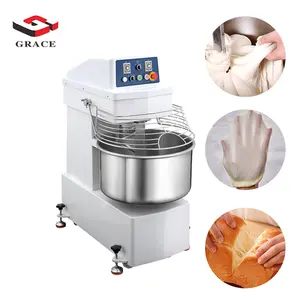
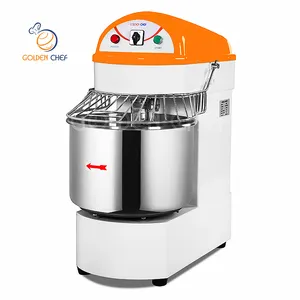


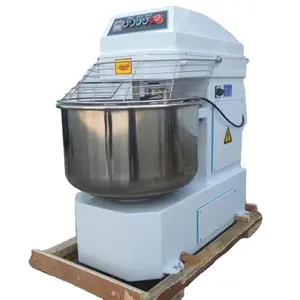


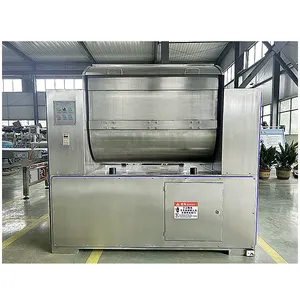




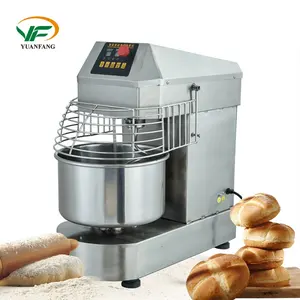






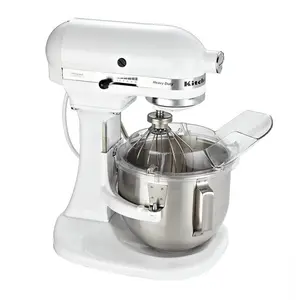






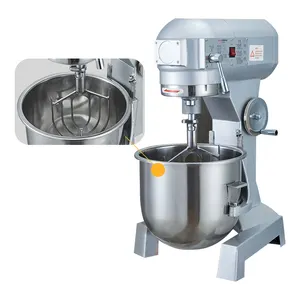









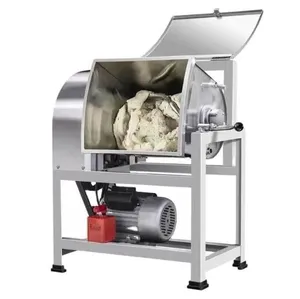

























 浙公网安备 33010002000092号
浙公网安备 33010002000092号 浙B2-20120091-4
浙B2-20120091-4